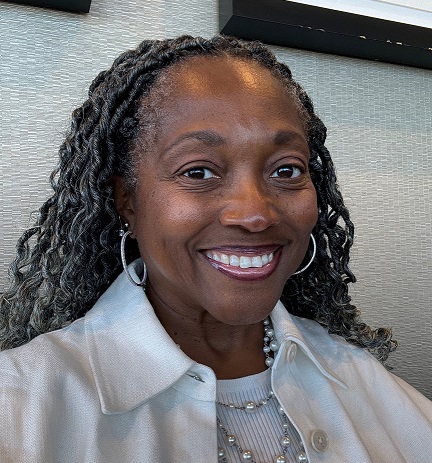
The Pension Boards interviews the Rev. Dr. Karen Georgia A. Thompson, the General Minister and President and Chief Executive Officer of the United Church of Christ, on the partnership of the financial ministries of the United Church of Christ, the evolving relationship with the Pension Boards and that of the former President and CEO Brian R. Bodager, as well as her 10-year vision for the church.
Q: As the CEO of the UCC denomination, how do you envision the partnership of the financial ministries in supporting the church? What priorities or strategies would you emphasize to align these ministries with the mission of the UCC?
The financial ministries are a part of the United Church of Christ with close relationship and collaboration with the National Ministries of the UCC. I envision these collaborative values will continue to be lived into in ways that will provide opportunities for doing ministry and mission together. This will ensure we are addressing the gaps and service needs across the ministries, rather than risking duplication of services and diminished resources.
Currently, there is a priority to gather the CEOs and communications directors to envision ways in which these ministries can better inform the members of the UCC. The Mission Planning Council, which gathers the CEOs of affiliated and associated ministries along with myself, the GMP/CEO, is a space where more intentional collaboration will be encouraged. In the weeks to come, this space will continue to foster ways in which the mission of the UCC can be addressed by these ministries—individually and collectively. The adoption of a set of programmatic priorities offers a way for the ministries to be intentional in how and what is being created and sustained to meet programmatic goals.
Q: Can you elaborate on the relationship between former President and CEO Brian Bodager and the National Setting?
Brian was a wonderful colleague whose leadership and ministry was felt across the UCC. As CEO of the Pensions Boards, Brian welcomed me when I started in my role as GMP/CEO and we committed to be in regular conversation. I am grateful for his quiet and grace-filled presence, his quick wit, and his commitments to collaboration. Brian will be missed.
Brian actively connected with the programs of the National Ministries. He attended United Church of Christ board meetings regularly and maintained relationships with colleagues on the board. He was a member of the Investment and Endowment Committee and attended meetings. He utilized his experience and expertise in serving the totality of the church as CEO and as a member of the UCC. There was a joint commitment to call each other when needed and to ensure we were connecting on the business of the church regularly. The commitment to relational investment was important to Brian and to our work together as CEOs. Challenging conversations were easier because there was a relational investment that we made. The ability to collaborate and to discuss the organizational needs was greatly assisted by the friendship Brian and I had.
Q: How has this partnership evolved to address the current needs of the church while paving the way for future collaborative opportunities, including Philanthropy?
The partnership has evolved with intention to examine the overarching needs of the denomination and to address emerging needs together. Before we add new ministries and programs there is thought given to what we can do together. As needs are assessed, the questions are being asked about the perspectives brought from the purview of the organizational contexts. We want to be able to maximize our ability to serve, rather than become burdened with duplications or missed opportunities which come from siloing where collaboration could be fostered.
Q: How significant is the Pension Boards’ work in partnering with ministers and employer organizations? Specifically, how does this collaboration help resource their needs and support financial wellness, enabling them to carry out ministry from a place of strength and stability?
Ministers have needs that the Pension Boards can meet in a unique way because these needs become aggregated and can be responded to in ways that a single congregation or conference cannot understand or meet. The ability to hear from ministers in a variety of settings, with varying needs, is important to the life of the church.
Q: Looking ahead, where do you see the UCC in the next five to ten years? What steps will be essential to shaping the church’s future? How can the Pension Boards continue to be a partner in ministry through this evolving landscape?
In the next five to ten years, it is my hope that the UCC will be living even more fully into commitments to be one church. Being the church in evolving times should continue to be a focus, even as the UCC continues to live into its rich diversity. The commitments to justice and ecumenism will also be present. The Pension Boards has been able to connect its work with ecumenical partners and as this witness broadens, I hope the Pension Boards will continue to collaborate ecumenically.
This article was featured in the Pension Boards’ 2024 Annual Report which can be found here.
